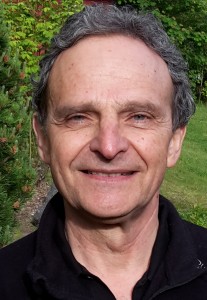In June 2018 Prof. Marc Lazar (SciencesPo Paris) steps down as President of the Association for Political History. We asked him to reflect on the first 4 years of the APH and the future of political history in general.
How do you look back on your time as president of the APH?
It has been a great and exciting experience. When we decided to create the APH we were with only a few professors coming from different European universities (Leiden, Luiss, Bielefeld, Aarhus, King’s College and SciencesPo) and quite without financial support. My colleagues proposed me to be the first president. That was a real honour to me.

We had two convictions. First, we wanted to revive political history by integrating the new developments in the field and to create a forum for PhD students. Secondly, we decided to adopt one simple methodology: to progress step by step. We created a real team spirit. We worked hard and succeeded to expand the number of members of the Association. There will always be hard work to do, but I think we have build solid foundations.
What is your best memory from the international APH conferences?
Each conference has left me good memories. First of all, this is because of the scientific qualities of each session. I learned a lot on so many topics very far away from my own fields of competence. I also enjoyed the excellent climate of sociability among PhD students and professors. Those were good moments of relaxation. Sometimes it is during informal interactions among researchers with a glass of wine or a beer that you learn a lot.
My main satisfaction was when after a conference I received some emails of PhD participants who told me their colleagues or important professors at the conference gave them relevant and important advices. I have also appreciated the motivation of the PhD students who remained in touch and do a good publicity for the APH. In these moments, you know you have worked for something!
“First, we wanted to revive political history by integrating the new developments in the field and to create a forum for PhD students. Secondly, we decided to adopt one simple methodology: to progress step by step.”
What is the most important task for (young) political historians in the next 5 years?
The most important task for young political historians is to become completely part of the process of internationalization. That means you have to read all the literature on your topic in English or in others languages, to participate in international conferences, to publish books and papers in the main journals of the discipline. If you want to have an academic career this is an imperative. But it’s also crucial if you want to apply to any other kind of job. For those political historians who continue in academia, they will have to be open to other social sciences such as political science, sociology, and anthropology.
What advice would you give your successor, prof. Henk te Velde?
Henk does not need advice. He has clear ideas on the future of the Association and I appreciated to collaborate with him and Margit van der Steen in the board of the APH.Nevertheless, I think we have to develop the Association: to find more money, to organize other kinds of conferences (not limited to PhD students) and to attract departments or centers of research in Central Europe, Russia, North America but also on other continents. That will be Henk’s task and he will be up to it.
We would like to thank Prof. Marc Lazar for his commitment as President of the APH.

